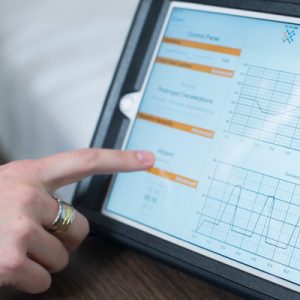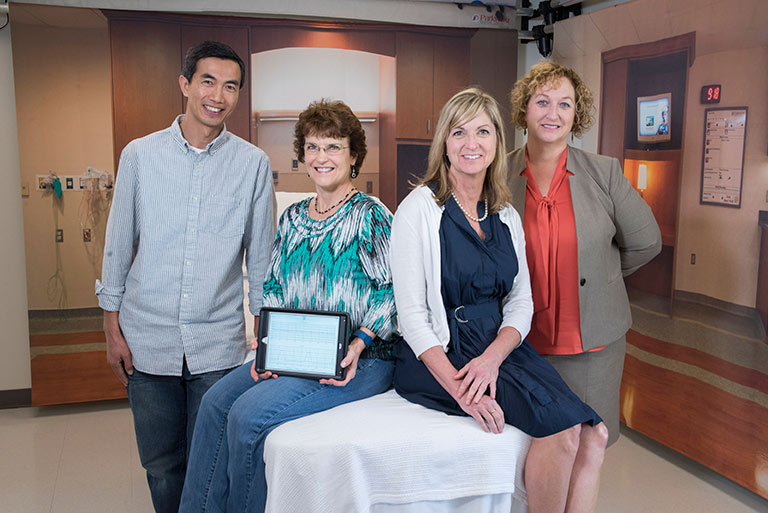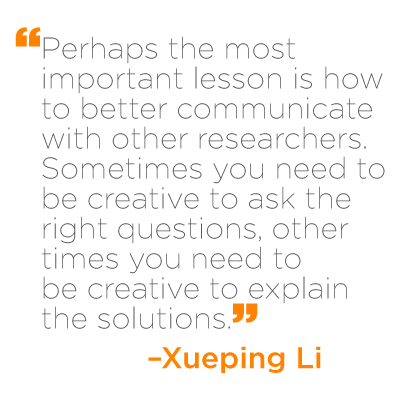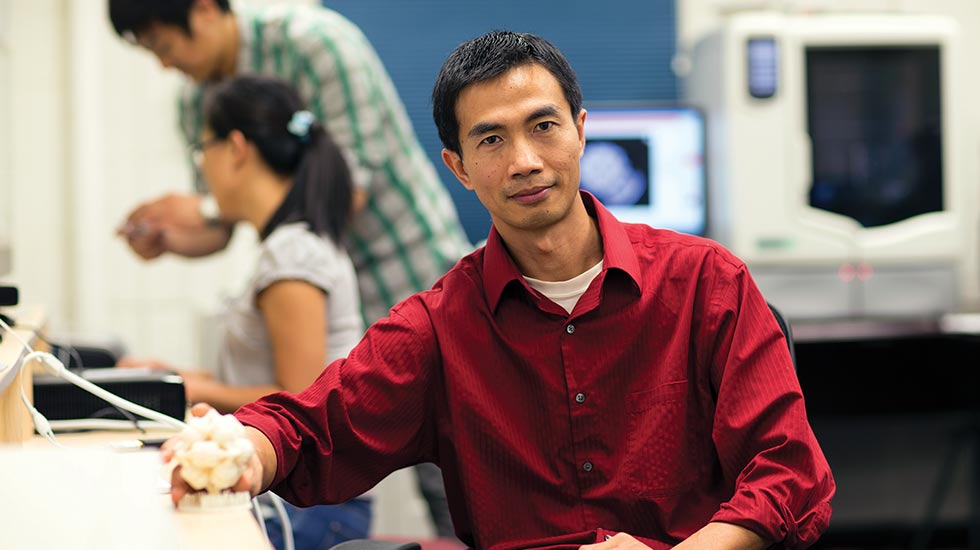Engineering Better Health Care
Patients hospitalized with a debilitating condition often struggle with the ability to communicate urgent needs.
When a patient told her, “I want to speak for myself,” Rebecca Koszalinski, a certified rehabilitation nurse and assistant professor in the College of Nursing, sought to develop a method that would improve communication and care for patients suffering from cerebral palsy, spina bifida, and other diseases that affect the ability to speak.
Koszalinski turned to Industrial and Systems Engineering Associate Professor Xueping Li to partner with her on the project and develop an app called simply Speak For Myself.
Li and Koszalinski brought in College of Nursing Associate Professor Sadie Hutson to develop and improve the app, which helps patients relay their needs to medical staff in situations where spoken communication is difficult or impossible. The app is currently being piloted in hospitals throughout Knoxville and East Tennessee.
“When collaborators bring the problems to me, I bring together a team,” said Li, who also codirects UT’s Health Innovation Technology and Simulation (HITS) Lab.
These teams are often interdisciplinary, incorporating faculty and students from across the university.
Assistive Apps
Indeed, the Speak For Myself project is far from the first time Li has teamed up with faculty from outside his department.

He teamed with the HITS Lab co-director and College of Nursing professor, clinical assistant professor Sheila Taylor, and simulation director Susan Fancher
on the Simulated Electronic Fetal Monitoring (SEFM) app, which trains nurses to interpret data from fetal monitoring systems.
Li and Wyatt also developed DocuCare, a learning tool that simulates the use of electronic health records in patient care.
Li’s research areas include complex systems modeling, simulation, and optimization; health information technology; mobile health; health systems engineering; and information systems, all of which factor in his collaborations.
Li said he applies industrial engineering techniques to the projects while also learning from them as he contributes.
His participation in these projects reflects back to ISE in multiple positive ways, giving students critical insight into real-world issues and how their chosen degree can help.
DocuCare is being used by more than 400 universities around the world, while the SEFM app won second place at the Institute of Industrial and Systems Engineers 2015 Annual Conference, demonstrating UT’s expertise.

Better Patient Care
ISE’s ties to health care improvements extend even further, with Assistant Professor Anahita Khojandi helping Li develop predictive models for early sepsis detection.
“Xueping is leading the efforts on setting up the database and gathering data, and I’m leading the analytics efforts and modeling,” Khojandi said.
On another project, Khojandi and ISE Assistant Professor Oleg Shylo collaborate with the Movement Disorders Division at Icahn School of Medicine at Mount Sinai Hospital in New York to improve the follow-up care of patients with Parkinson’s disease via deep brain stimulation therapy.
By analyzing test results and classifying patients accordingly, the duo can accurately place patients into either 60Hz or 130–185Hz stimulation groups, offering the potential of uniquely targeted therapy.

Khojandi also works with Bruce Ramshaw, chair of the Department of Surgery at the UT Graduate School of Medicine, to investigate complications following abdominal wall reconstruction procedures.
“We analyze patient demographics and intraoperative factors and develop predictive models that can accurately determine whether a procedure on a new patient will result in complications or not,” she said, adding that the technique helps develop patient specific treatment.
Within the college, Khojandi and Shylo have teamed with Assistant Professor of Electrical Engineering and Computer Science Nicole McFarlane on hardware, software, and mathematical frameworks for inexpensive neuroheadsets that are easy to sleep in and can conduct sleep scoring.
Khojandi said the headsets will enable studies that could shed light on the mysteries of sleep, how it affects various body systems, and even potentially some neurodegenerative diseases.
It’s just another sign that the human body might be the most complex system engineers can tackle.
